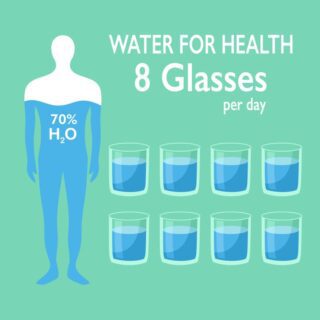Things everyone should know about antibiotics

In 1928, Alexander Fleming noticed that there was a fungus growing on his bacterial culture. Around this fungus, he noticed that there were clear areas with no bacteria present. After much research into this phenomenon, he concluded that the virus, penicillium notatum, had the ability to kill the bacteria (The History of Antibiotics, n.d). It was later formulated into penicillin, and almost 100 years later, millions of Americans are prescribed penicillin each year.
According to the CDC, in 2020, clinicians wrote over 201.9 million antibiotic prescriptions (Outpatient Antibiotic Prescriptions, 2020). Most Americans have been prescribed antibiotics at least once in their lifetime, though many don’t know much about them. Here, we will discuss the things everyone should know about antibiotics.
Like all medications, antibiotics come with a long list of possible side effects, though most are mild. If an antibiotic comes with a severe possible side effect- or “black box warning”- your clinician will discuss this with you when the medication is prescribed. Many antibiotics share similar side effects. One of the most common side effects of all antibiotics is diarrhea. This happens because while antibiotics kill the bacteria making you sick, they can also kill or disrupt the bacteria that protects your gastrointestinal system. According to the Mayo Clinic, “about 1 in 5 people who take antibiotics develop antibiotic-associated diarrhea,” (Antibiotic-associated diarrhea, n.d). On rare occasions, antibiotics can cause a severe and infectious kind of diarrhea called clostridioides difficile (“c. diff” for short), so it is important to let your clinician know if you have severe diarrhea and associated symptoms such as fever, abdominal pain, and malodorous stool. Other common side effects of antibiotics include nausea, rash, and thrush.
Even considering the possible side effects of antibiotics, taking antibiotics is a great way to help your body fight off bacterial infections. Another thing that everyone should know, though, is that not all infections are caused by bacteria. Many infections are viral and antibiotics won’t be effective. For instance, the common cold and seasonal flu are both caused by viruses and thus are not impacted by antibiotics. Using antibiotics for viral infections can create antibiotic resistance, which occurs “… when the germs… develop the ability to defeat the drugs designed to kill them,” (About Antibiotic Resistance, n.d). When there is antibiotic resistance, the list of effective antibiotic treatments for a specific infection shrinks. It is important that we are strict about the use of antibiotics for their intended purposes, a term called “antibiotic stewardship” in healthcare.
Resources
Antibiotics. Cleveland Clinic. (n.d.). Retrieved October 25, 2021, from https://my.clevelandclinic.org/health/drugs/16386-antibiotics.
Centers for Disease Control and Prevention. (n.d.). About antibiotic resistance. Centers for Disease Control and Prevention. Retrieved October 25, 2021, from https://www.cdc.gov/drugresistance/about.html.
Centers for Disease Control and Prevention. (2020). Outpatient antibiotic prescriptions – United States, 2020. Centers for Disease Control and Prevention. Retrieved October 25, 2021, from https://www.cdc.gov/antibiotic-use/data/report-2020.html.
The history of antibiotics. Microbiology Society. (n.d.). Retrieved October 25, 2021, from https://microbiologysociety.org/members-outreach-resources/outreach-resources/antibiotics-unearthed/antibiotics-and-antibiotic-resistance/the-history-of-antibiotics.html
Mayo Foundation for Medical Education and Research. (n.d.). Antibiotic-associated diarrhea. Mayo Clinic. Retrieved October 25, 2021, from https://www.mayoclinic.org/diseases-conditions/antibiotic-associated-diarrhea/symptoms-causes/syc-20352231.
Recent Posts

This article reviewed by Ms. Deb Dooley.
There’s nothing more important than our good health – that’s our principal capital asset.
#medical #telehealth #antibiotics #umedoc








